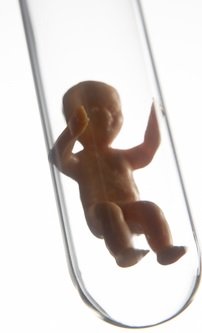
Researchers from Genk Institute for Fertility Technology, Belgium presented their results at the European Society of Human Reproduction and Embryology (ESHRE) annual meeting in London
Singapore: As a solution to the lack of affordable test tube baby technology in developing countries, Belgian doctors have arrived at a solution. The researchers from Genk Institute for Fertility Technology have developed a low cost version of the test tube baby technology that could be used in developing countries.
Announcing their research on Monday at the European Society of Human Reproduction and Embryology (ESHRE) annual meeting in London, researchers explained the process to experts. They said that their simplified process would cost $260 per cycle of treatment, which is only 10-15 percent of the current cost of Western-style IVF. Further, they explained that their method delivered results that were not much different to those seen with conventional in-vitro fertilization (IVF) programmes.
"Infertility care could one day become universally accessible," said Dr Elke Klerkx from the Genk Institute for Fertility Technology at a medical meeting. After the first test tube baby was born in 1978, about 5 million such babies have been born around the world, even though the cost of this process continued to remain high.
"Infertility care is probably the most neglected healthcare problem of developing countries, affecting more than 2 million couples according to the World Health Organization," Dr Klerkx pointed out at the meeting.
In an effort to come up with this low-cost version of the technology, the team of researchers led by Dr Klerkx used an embryo culture method that removes the need for much of the expensive laboratory equipment found in European or North American IVF clinics.
Results from a study showed similar success rates between the standard and low-cost system and two-thirds of the top quality embryos from 35 cycles as assessed by an independent expert came from the simplified system.
"Our initial results are proof of principle that a simplified culture system designed for developing countries can offer affordable and successful opportunities for infertility treatment where IVF is the only solution. This is a major step towards universal fertility care," said Dr Klerkx.
Experts at the annual meeting where the results were presented said that this test had so far only shown to work in a developed world setting, using a laboratory in Belgium. They stressed on the need of conducting larger trials in one or more developing country so that the process could be fully tested. ESHRE estimated that the prevalence of infertility that lasts for at least 12 months is around 9 percent worldwide for women aged 20-44.
The researchers are now looking at building a low-cost IVF laboratory by November this year that could be used as a template for use in poorer countries. The team has said that this laboratory would also provide training for clinicians from developing countries.




